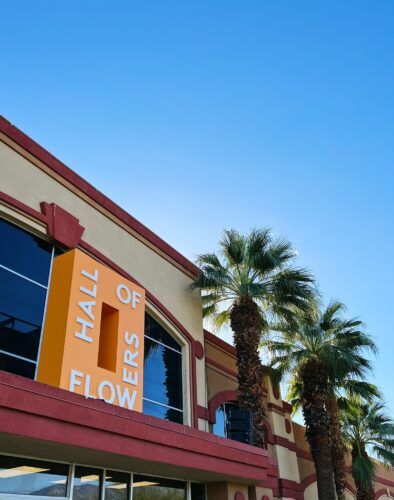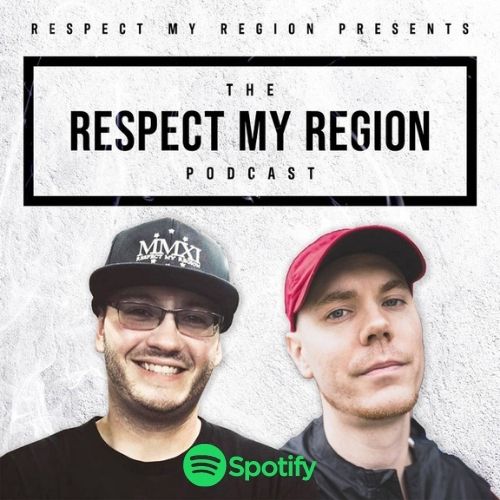
Darren Waller’s Post NFL Career Continues to Rise After Westside Boogie Collab “Majoring in Minor”
Darren Waller, renowned for his prowess on the NFL field, has seamlessly transitioned into the hip-hop arena, carving out a notable presence with his authentic storytelling and lyrical depth. Since embarking on his musical journey in 2015, Waller has developed

Illicit Brands: Championing Cannabis Reform and Craft Quality in Missouri
In the burgeoning landscape of legal cannabis, Illicit Brands has carved out a distinct identity as a brand with a mission. The name was chosen to prompt consumers to ask hard-hitting questions: “Why is this illicit?” “Why are some people

2025 NBA All-Star Roster Predictions: Lamelo Takes a Leap & Dame Bounces Back
NBA all-star voting officially started on December 19. Each year fans get to pick five players from the East and five players from the West to represent their teams and conference in the all-star game. Although the all-star game format

Over 50 Albums From the Pacific Northwest That Made An Impact In 2024
It’s been a transitional period for the Pacific Northwest music scene as some established artists expand their reach outside of the city while the younger generation is starting to find their footing and make a name for themselves. Life has

WNBA Superstar Kelsey Plum Launches Signature Cigar with Kingsmakers Cigars
WNBA star Kelsey Plum has partnered with Kingmakers Cigars to introduce her own signature cigar line. This collaboration not only marks a significant milestone in the cigar industry but also underscores Plum’s dynamic presence both on and off the basketball

AI’s Impact on Retention: How Tech is Reshaping Customer Loyalty
In today’s competitive business landscape, retaining customers is more critical—and challenging—than ever before. With countless options at their fingertips, customers demand personalized experiences, seamless interactions, and consistent value. Enter artificial intelligence (AI): a game-changing tool that’s transforming customer retention strategies

Hall of Flowers 2025’s BLUEPRINT Aims to Expand California Cannabis Industry
Hall of Flowers, renowned for its premier cannabis trade shows, is set to elevate the industry once again with Hall of Flowers 2025 with the introduction of the BLUEPRINT at its upcoming event in Ventura, California, on March 19-20, 2025.

Rassman Payments Shares Important Insights on Managing Volatility During High-Demand Times in Cannabis Payment Processing
[Los Angeles, CA] – [December 30th] – As the cannabis industry continues to grow and evolve, businesses face unique challenges when it comes to managing volatility with payment processing during peak sales periods. Ian Rassman, founder of Rassman Payments, has

NFL x OVO: A Championship Streetwear Collaboration Merging Football & Hip-Hop
In a move that combines the gridiron’s ferocity with the finesse of streetwear, the NFL has teamed up with Drake’s globally renowned brand, October’s Very Own (OVO), for a groundbreaking collaboration. NFL x OVO is a testament to how far

MJBizCon 2024 Recap: Key Highlights and Industry Insights Moving Cannabis Forward
MJBizCon 2024 is the ultimate hub for cannabis industry growth, from cultivators perfecting strains to tech innovators advancing portable dab rigs and creators documenting the hustle. This conference connects the people and ideas that shape the future of cannabis, turning

Ralphy Davis & Tope Deliver a Statement with New Album, ‘No Co-Sign’
Ralphy Davis and Tope have joined forces to drop No Co-Sign, a collaborative album that’s as much a declaration of their talents as it is a celebration of their shared vision. Released to eager anticipation, the project seamlessly fuses the

NBA Christmas Delivered With Five Thrilling Matchups
Every year, the NBA gives us five Christmas matchups to enjoy during the holiday season. NBA Christmas is an annual tradition that invokes a lot of nostalgia for the players and fans alike. This year, the NBA was competing with

Blackleaf Launches API To Boost Cannabis Retail Revenues With Amplified Engagement and Increased Sales
On December 10th, Blackleaf.io took another leap forward in transforming cannabis retail operations with the launch of its API. This innovative addition allows businesses to seamlessly integrate Blackleaf’s powerful marketing and automation tools directly into their point-of-sale (POS) systems and

Comprehensive Guide to Breaking Into the Cannabis Industry
The cannabis industry has rapidly evolved from a fringe market to a booming sector with opportunities spanning cultivation, retail, technology, and beyond. With legalization expanding globally, the demand for passionate, skilled professionals has never been higher. Whether you’re a cannabis

OG Mambo Links with DJ Holiday For ‘Almost Missed My Flight’
OG Mambo, a friend of the brand, has blessed our tape decks and MP3 players with his latest album with DJ Holiday. Almost Missed My Flight is out on Spotify and Apple Music right now. Almost Missed My Flight was

Over 50 Albums From the Pacific Northwest That Made An Impact In 2024
It’s been a transitional period for the Pacific Northwest music scene as some established artists expand their reach outside of the city while the younger

WNBA Superstar Kelsey Plum Launches Signature Cigar with Kingsmakers Cigars
WNBA star Kelsey Plum has partnered with Kingmakers Cigars to introduce her own signature cigar line. This collaboration not only marks a significant milestone in

AI’s Impact on Retention: How Tech is Reshaping Customer Loyalty
In today’s competitive business landscape, retaining customers is more critical—and challenging—than ever before. With countless options at their fingertips, customers demand personalized experiences, seamless interactions,

Hall of Flowers 2025’s BLUEPRINT Aims to Expand California Cannabis Industry
Hall of Flowers, renowned for its premier cannabis trade shows, is set to elevate the industry once again with Hall of Flowers 2025 with the

Rassman Payments Shares Important Insights on Managing Volatility During High-Demand Times in Cannabis Payment Processing
[Los Angeles, CA] – [December 30th] – As the cannabis industry continues to grow and evolve, businesses face unique challenges when it comes to managing

NFL x OVO: A Championship Streetwear Collaboration Merging Football & Hip-Hop
In a move that combines the gridiron’s ferocity with the finesse of streetwear, the NFL has teamed up with Drake’s globally renowned brand, October’s Very

MJBizCon 2024 Recap: Key Highlights and Industry Insights Moving Cannabis Forward
MJBizCon 2024 is the ultimate hub for cannabis industry growth, from cultivators perfecting strains to tech innovators advancing portable dab rigs and creators documenting the

Ralphy Davis & Tope Deliver a Statement with New Album, ‘No Co-Sign’
Ralphy Davis and Tope have joined forces to drop No Co-Sign, a collaborative album that’s as much a declaration of their talents as it is

NBA Christmas Delivered With Five Thrilling Matchups
Every year, the NBA gives us five Christmas matchups to enjoy during the holiday season. NBA Christmas is an annual tradition that invokes a lot

Blackleaf Launches API To Boost Cannabis Retail Revenues With Amplified Engagement and Increased Sales
On December 10th, Blackleaf.io took another leap forward in transforming cannabis retail operations with the launch of its API. This innovative addition allows businesses to

Comprehensive Guide to Breaking Into the Cannabis Industry
The cannabis industry has rapidly evolved from a fringe market to a booming sector with opportunities spanning cultivation, retail, technology, and beyond. With legalization expanding

OG Mambo Links with DJ Holiday For ‘Almost Missed My Flight’
OG Mambo, a friend of the brand, has blessed our tape decks and MP3 players with his latest album with DJ Holiday. Almost Missed My
Stay Connected
Disclaimer
Warning: This product has intoxicating effects and may be habit-forming. Smoking is hazardous to your health. There may be health risks associated with consumption of this product. Should not be used by women that are pregnant or breast feeding. For use only by adults twenty-one and older. Keep out of reach of children and pets. Marijuana can impair concentration, coordination, and judgment. Do not operate a vehicle or machinery under the influence of this drug.
The articles featured on this website are the opinion of the author and may not reflect the opinion of Respect My Region, its sponsors, advertisers, or affiliates.





